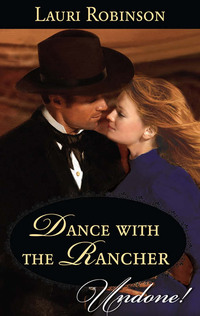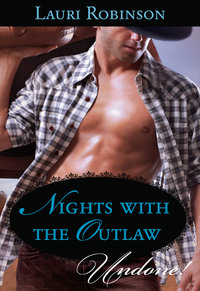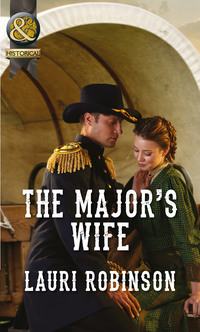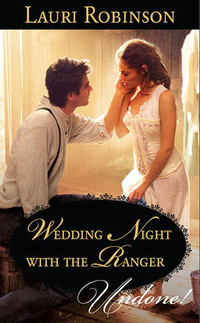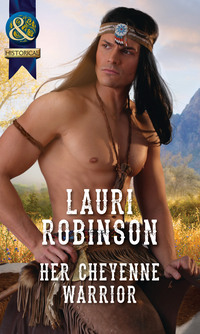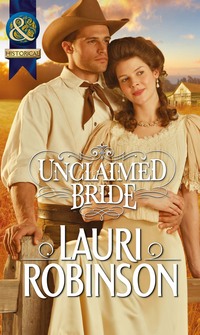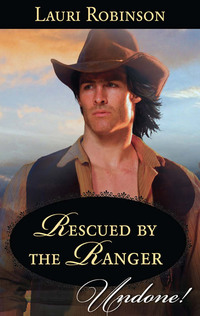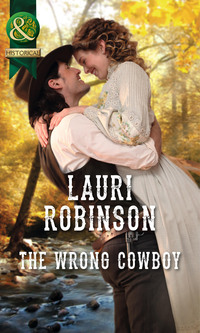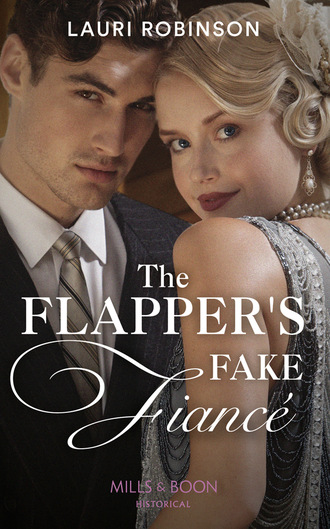
Полная версия
The Flapper's Fake Fiancé
She’d learned more from that other guy, the one with the black mustache, who’d given her the heebie-jeebies.
Lane had made those go away. That other guy hadn’t been half the dancer that Lane had been.
A giggle bubbled in her throat.
Oliver.
She’d loved calling him that. This truly had been the best night of her life.
And tomorrow night was going to be just as wonderful. They were going back to the Rooster’s Nest. She’d find a way to convince her sisters they had to go again tomorrow night.
She glanced at the clock ticking away beside her bed and stifled another giggle. It was after midnight so she didn’t even have to wait until tomorrow. It had already arrived. Therefore, tonight, they would be going back.
Still smiling, she closed her eyes and pressed the covers to her lips to cover yet another giggle she could no longer hold in.
Half an hour later, she was still too full of excitement to sleep, so she clicked on the light beside her bed and pulled a pad of paper and pencil out of her nightstand, then, sitting cross-legged on the bed, she wrote an article about the latest craze hitting speakeasies. Dance-offs! That would be perfect as a headline, and while writing, she closed her eyes every so often in order to remember minute details that would engage readers.

Lane’s eyes went from his watch to the door and back again so many times he had to lift his wrist to his ear. His watch was ticking. Was working. He ran the tip of one finger in a figure eight in the condensation his cold drink left on the table, wondering if he was wrong. Libby may not show up again tonight.
He was sure that had been her, along with two other flappers, who’d run out of the alley and jumped onto the street trolley. It had taken only a few minutes for him to run to his car, round the corner and follow the route of the red line, but it must have taken longer than he’d realized, because he hadn’t seen them get off. He’d followed the streetcar past several street corners. She must have jumped off at one before he’d started following the line. All three of them must have.
They must have come to the Rooster’s Nest together, and left together.
Even though he’d watched her walk out alone, and hadn’t seen her talk to anyone.
Then again, until she’d dragged him onto the dance floor, he hadn’t noticed her at all. He’d come to the Rooster’s Nest last night to talk with Harley Maus about a possible story concerning some activity down at the dock. Missing dockworkers. A woman was hounding him to find out what had happened to her brother, saying he’d never come home from work one night. That, people coming to him, looking for assistance, happened as often as want-to-be reporters mailing in articles they wanted printed in his newspaper. Folks who didn’t get the answers they wanted from the police came to him, expecting him to uncover the truth. Trouble was, just like those sending in articles, they often didn’t like the answers he provided, either.
Lane was half placating the woman because young men not coming home wasn’t that unusual, especially dockworkers. Many went to work on the docks merely for the chance to get a job on an ocean liner and leave on the next tide. However, men had been shanghaied from the docks for centuries, and that’s why he’d asked Maus to meet him.
Maus had arrived, and they’d stepped outside to discuss things, but the lead had not really gone anywhere. Maus hadn’t heard anything about a young man missing, or being shanghaied. He had mentioned that someone had started up a distillery in the roughest of sections. That wasn’t unusual, either, and Lane figured he’d check that out later. He felt bad for the woman, but the Rex Gaynor story was where he needed to focus his time.
He had just walked back inside the Rooster’s Nest, planning on having a nightcap before going home to bed, when Libby had appeared last night. The events that had occurred after that had kept him awake half the night.
She’d been right there, in his thoughts, keeping him awake, and she’d been in his dreams when he’d finally dozed off. She’d been in his thoughts all day, too. Wondering how she knew about the stolen money. That information had never been released to the general public. Not years ago, or recently.
Which was why he was here, waiting to see if she walked through the door again tonight, and find out exactly what she knew, and how she’d acquired that information. His sleepless night had left him with many other questions, too. Who was she? What was her real name? Where did she live? Would she be here again tonight or not?
He glanced at his watch again. It was getting late. Almost nine.
The wave of disappointment that washed over him was surprising. She was nothing more than a source. Just like any other. However, this story meant more to him than others. Not the story in itself, but the outcome. He wanted Gaynor back behind bars, paying for his crimes. His family hadn’t been the only ones killed on that train, and they deserved to have Rex Gaynor pay for his deeds as much as him.
Could that be it? Could a member of her family have been on that train?
Lane picked up his glass and emptied the contents in one swallow. The table he was sitting at wobbled slightly, and he shifted his gaze from the door to the chair opposite him.
Raymond Klein had pulled out the chair. “Didn’t expect to see you here, Lane,” Raymond said while sitting down.
Lane set his glass on the table. “Just having a nightcap before heading home.” The Rooster’s Nest wasn’t the sort of place he and Raymond ran into each other. Klein was known as one of the best screenwriters in Hollywood. All the big names, studios and actors, wanted him writing their scripts—work for only them—yet, his success had allowed him to remain independent—he wrote for those he wanted to, and when he wanted to. Lane respected Raymond for that. Having covered Hollywood news for years, Lane knew the good and the bad, and walked a fine line in what he reported. He let the gossip magazines print the chin music and rumors that the mongers wanted to read about like love lives and pocketbooks. He focused on the real news, and let the studios pay him well to print ads in the Gazette about their latest and greatest movies. His hard-earned readership gave the studios a good return on their money.
Raymond slapped the table. “This saves me a trip, or a phone call, which is how I would have invited you.”
“Invited me to what?” Lane asked.
“I’m throwing a party tomorrow night.” Klein took the flat hat off his head of unruly blond hair. “A real shindig.”
“What’s the occasion?” Lane asked, even though most people didn’t need a reason to host a party or to invite him. There was a party, several of them, every night in the city, and he had an open-door invitation to almost every one of them. People, famous or not, wanted their names in the Gazette.
Raymond grinned, nodded and glanced around as if contemplating his answer. The full-fledged smile that appeared when he ended his scan of the room had Lane wondering if this time there truly was a reason for a party. One that had Raymond happier than Lane had ever seen him.
Raymond, his face aglow, leaned across the table. “I asked Ruby Lancaster to marry me yesterday.” He slapped the table again. “And she said yes.”
Ruby Lancaster was an actress who had been billed as “America’s Sweetheart” by all of the Hollywood magazines. She was a black-haired beauty, and as friendly as she was lovely, leastwise, she had been on the few occasions Lane had met her. “Well, then, congratulations are in order.” He picked up his empty glass. “I’d toast you, but...”
Raymond laughed. “You can do that tomorrow night. We’re heading to New York the next day. That’s where we’ll get married.”
“Are you moving there?” That would surprise Lane, considering both Ruby and Raymond had built their reputations here, not out east.
“No. Just the wedding will take place there. It’s where Ruby is from. Her family still lives there. Then we’ll be back. She just finished shooting a movie, so we have to act now, before production starts on the next one.” Raymond gestured toward the bar with his head. “Needed to stop in here to order the whiskey. The Rooster’s Nest is the only place to get Minnesota Thirteen anymore. Those prohibition boys are hitting the makers and those transporting it, hard.”
Lane had heard that about that, how federal agents were burning barns, sheds, homes and even churches, across central Minnesota, and infiltrating communities with informers, which was making an impact on the bootlegging capital. However, like here in Los Angeles, overall, police forces and sheriff departments didn’t side with the federal agents. With the support and, at times, help from local authorities, the makers of the highly popular Minnesota Thirteen found ways to keep on brewing, and had started sending their shipments up through Canada by rail and down the coast by ship.
The Rooster’s Nest had a close connection with the docks, and was known as the best distributor of Minnesota Thirteen. None of this information would ever be printed in the Gazette. It may be newsworthy, but he didn’t need prohibition agents hounding him. Furthermore, like the majority of the population, the readership of the Gazette was heavily against prohibition, but there were some who were for it, and they were also influential. Therefore he was careful to tread lightly on all aspects of the subject. Politics, leaning one way or the other, could kill a newspaper like a bullet to the head.
“No one will ever say they drank coffin varnish at one of my parties,” Raymond said. “Especially this party.”
Coffin varnish was a very appropriate name. Bootlegged liquor was made out of anything folks could get their hands on, and more oftentimes than that, it proved poisonous, especially when bootleggers took to using car radiators to distill it in.
Minnesota Thirteen was known as a premium, twice-distilled and properly aged corn whiskey that many claimed was better than what they used to get prior to prohibition. It was not only served at all the elite parties in Hollywood, its distribution was well guarded by the mob. “A party of this magnitude calls for only the best,” Lane said.
“Yes, it does,” Raymond agreed. Once again, he leaned closer and lowered his voice. “Gotta be honest with you, Lane, I’ve never been so happy. I was scared out of my wits to ask Ruby to marry me. More afraid than I’ve ever been before.”
Lane’s mind shot off track for a moment, back in time, to when he’d asked Naomi to marry him. He couldn’t remember being afraid, but he could remember being happy. Very happy. That had been so long ago. They’d met while he’d been researching a story down there, and he traveled down to San Diego several times after finishing that story, to see her. She’d been the one to say they should consider getting married, before he went broke traveling down to see her. The next trip down, he’d asked her, she’d said yes, and they were married and she’d moved to LA with him within weeks.
Raymond laughed. “That’s why the party is tomorrow night and we are leaving the day after. I don’t want her to change her mind.”
Drawn back to the present, Lane nodded. He had a finger on most things happening, but hadn’t been aware of a budding romance between Ruby and Raymond. “Have you been dating long?”
Raymond shook his head. “That’s just it. I didn’t know her, not until a few weeks ago, when I had to make some script changes for the big brothers.”
The Wagner Brothers, who owned one of the largest and well-established studios, were two of the biggest cheeses in Hollywood. They played the parts well, and played others just as well. There had been a lot of flak floating around about how their business dealings had been pushing the little studios out of the business by forcing movie theaters to show only their films. It had been happening for some time, but the smaller studios were gaining ground on the brothers. Some claimed it was due to mob involvement, which was completely believable. The mob was involved in nearly every business, and show business was too big of an asset right now for them not to be in it. Furthermore, he had on good authority the mob was who had built the latest and grandest theater downtown, and that theater had shown one of Jack McCarney’s movies at their premiere opening night. Jack’s Star’s Studio was one of the smaller guys, and certainly gaining ground since that premiere.
“We’d spent a couple of evenings going over the script and the changes she had suggested, and I was not only impressed by her insight, I was, well, smitten by her. Things went from there, and now we are getting married.” Raymond laughed again, slapped the table and stood all at the same time. “I have a lot to do before tomorrow.” He plopped his hat on his head. “My place. Tomorrow night. I’d appreciate if you’re able to make it.”
Raymond lived in a newly built apartment complex in the middle of LA. He’d been one of the first to buy into the idea of buying an entire floor of the building and turning it into a luxurious apartment. What had sounded like a shady deal, a fad, had become a reality. Celebrity and starlets were buying up shares in buildings and creating lavish living spaces all over downtown.
Their apartments now paralleled many of the homes being built up in Hollywoodland. That was also causing William Dryer, the developer of Hollywoodland, a good case of indigestion. He’d thought he’d had the market on luxurious living cornered, and had been raking in some good money. Dryer was a contentious man, set in his ways, and as ornery as a cornered bull, who, like many others, thought Lane should be giving him free advertising on a regular basis. Dryer was just bolder than most, had been in the newspaper office last week, demanding either an article or free advertising. He’d left without getting either. A hint of disgust rose inside Lane recalling how the man had even suggested that Lane should consider marrying one of his daughters.
He wasn’t interested in ever getting married again. Especially to one of William Dryer’s daughters. He didn’t know the daughters, but he knew Dryer, and that was enough to turn him off.
“I’ll be there,” Lane said, standing up to shake Raymond’s hand.
Raymond pumped his hand. “Thanks, Lane, I do appreciate it.” He walked around the table, but then stopped long enough to say, “Bring a date, why don’t you.”
Lane didn’t answer. It wasn’t really a question, more of a friendly gesture. Although few knew he’d been married at one time, because it had been long ago, before he’d built up his reputation of fair and honest reporting, most knew he didn’t date. On purpose. He was married to the Gazette now. There was no need for dates, or anything that dating led to.
He turned to watch Raymond leave, and his heart damn near stopped at the sight of who stood near the corner leading to the door.
She was wearing an orange dress with a scooped neckline and what looked like flecks of gold in the material by the way the light caught it, and a matching hat complete with gold feather, but it was the impish smile on her face that kicked his heart back into beating. How had he forgotten about those two little dimples that appeared in her cheeks when she smiled? They were adorable, and made him grin in return.
Nibbling on her bottom lip, while still smiling, she walked toward him.
He kept his eyes on her, and raised a brow as each step brought her closer. She didn’t seem quite as confident as she had last night.
Until she stepped closer. Then she twisted her head slightly, shooting him a playful wink as she rounded the table next to his.
His mouth was strangely dry by the time she stopped next to him. He spoke to people from all walks of life, but suddenly couldn’t think of a thing to say.
“Hello, Oliver.”
Her voice sounded like music.
“I was hoping you’d be here tonight.”
He drew in a breath, and nodded at her honesty. “Hello, Libby, I was hoping you’d be here tonight, too.”
“Is that why you are here?” She tilted her head back to look him in the eye. “To see me?”
Honesty was one thing, but there were times when it needed to go only so far. “Could be. Is that why you are here?”
She giggled slightly. “Oh, Oliver, I don’t know why you do that.”
“Do what?”
“Answer my question with a question.”
“Did I do that?”
She giggled again. “Yes, and you know it.”
She was right. He nodded at his table. “Care for a drink?”
Her nod may have been subtle, but there was nothing subtle about the shine in her eyes. “Would you?”
He laughed. “Sit down, Libby. We’ll each have a drink.”
She sat, planted both elbows on the table and propped her chin on her clasped hands. “Why isn’t there any music tonight?”
Lane glanced at the empty piano bench. He couldn’t say if anyone had been playing earlier or not. “I don’t know.”
“I thought they always had music here.” Eyeing him, she asked, “Is the piano player taking a break?”
He waved over a cigarette girl. “I don’t know that, either.” Taking a cocktail without alcohol off the tray, he set it in front of Libby and then chose a glass of watered-down beer for himself. A dozen questions raced around in his head faster than his new printing press rolled out perfect copies of the Gazette.
“Thank you, Oliver.” She picked up her glass and took a tiny sip.
He should insist that she called him by his name, but she seemed to enjoy calling him Oliver so much that he didn’t want to stop her. She was enchanting. So enchanting that his next thought was to stand up and walk out of the Rooster’s Nest. Forget he ever met her.
Конец ознакомительного фрагмента.
Текст предоставлен ООО «ЛитРес».
Прочитайте эту книгу целиком, купив полную легальную версию на ЛитРес.
Безопасно оплатить книгу можно банковской картой Visa, MasterCard, Maestro, со счета мобильного телефона, с платежного терминала, в салоне МТС или Связной, через PayPal, WebMoney, Яндекс.Деньги, QIWI Кошелек, бонусными картами или другим удобным Вам способом.


